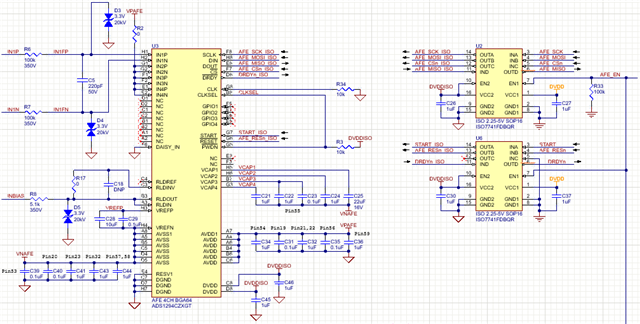Other Parts Discussed in Thread: ISO7741, ISO6741, ISO7841
Due to low stock and long lead times for P/N ISO7741FDBQR, we decided to replace them with P/N ISO7141CCDBQ. These chips are used to isolate an AFE from the rest of our circuit. Output of the circuit is a biphasic pulse at the frequency of 20Hz. Once we replace the 7741 chips with 7141 chips, output frequency changes from 20Hz to 26Hz and AFE tests fail. AFE communicates over SPI to the micro on board and SPI signals pass through this ISO 7141 chip.
So far we have tried slowing down the SPI communication and was able to read back setting registrations back from the AFE but still when trying to read a converted value from the AFE, it fails.
I would appreciate if you could help us solve this issue.



